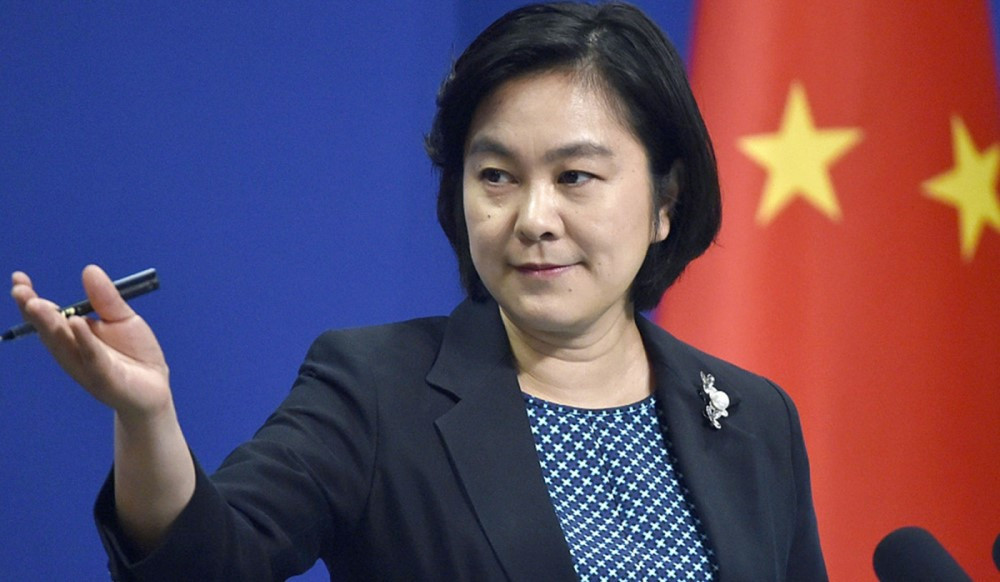China has again spoken about the Millennium Challenge Corporation (MCC) Compact a day before it is set to be discussed in the House for ratification asking whether it is a gift or Pandora’s box.
Responding to media queries during a press conference on Wednesday Spokesperson at the Chinese Foreign Ministry Hua Chunying warned that Nepal will find the meat of MCC difficult to chew, according to China News Service.
"I noticed that a US State Department spokesperson said earlier that Nepal’s failure to ratify the MCC compact will affect bilateral ties. The US Embassy in Nepal described the $500 million MCC grant as “a gift from the American people to Nepalis. I wonder, since when does a gift come with the package of an ultimatum? How can anyone accept such a gift? Is it a gift or Pandora’s box? I’m afraid it will turn out like a Nepali saying: It looks good, but you will find the meat difficult to chew," Hua said.
"It is China’s consistent belief that in pursuing international development cooperation, the principle of mutual respect and equality should be upheld, the sovereignty of the country concerned and the will of its people should be fully respected, and there should be no interference in any country’s domestic affairs, no political strings attached, no coercive diplomacy, and certainly no infringement on other countries’ sovereignty and interests for selfish gains."
She stated that China will continue to support the Nepali people in choosing independently their own development path and offer support and assistance to Nepal’s socioeconomic development to the best of its capability as Nepal’s friendly close neighbor and development partner.
The latest Chinese salvo against the MCC Compact comes just five days after Chinese Foreign Ministry Spokesperson Wang Wenbin said China opposes 'coercive diplomacy' referring to the February 28 deadline given by America to ratify the MCC Compact during a press conference on Friday.
Wang was responding to reports in the Nepali media that US Assistant Secretary for South and Central Asian Affairs Donald Lu warned Nepali leaders that America will review bilateral ties with Nepal if the MCC Compact is not passed by February end.
US Ambassador to Nepal Randy Berry has already refuted reports that the US government has threatened Nepali leaders to ratify the MCC Compact.
Lu had phoned Prime Minister (PM) Sher Bahadur Deuba, CPN-UML Chairman KP Sharma Oli and CPN (Maoist Center) Chairman Pushpa Kamal Dahal on February 10.
There were reports in some of the media that Lu warned the three leaders that America will review bilateral ties with Nepal if the MCC Compact is not passed by February end.
Speaking with journalists on February 14 Berry claimed that there is no truth in those reports. "We have not threatened Nepali leaders – that is false. But we are asking Nepal to follow through on its commitments," he stated. "Whether the Nepali leaders ratify MCC is a decision for Nepal to make, as a sovereign democratic nation, and Nepal's decision alone. After years of delays on following through on Nepal’s promise, we simply ask that ratifying the agreement be brought to a vote so the people, through their elected officials have their say."
A source close to Dahal had told Setopati that Lu told Dahal that America will take refusal to endorse the MCC Comapct as Chinese intervention and warned that it can affect bilateral ties between the two countries.
"We have had discussions with Nepali leaders – but not in the way characterized by some press and online discourse. As verifiable by public documents or statements, Nepali leaders understand that MCC will bring jobs and infrastructure to Nepal – it is why the government of Nepal asked us for an MCC Compact in the first place," Berry claimed.
He stressed that ratification of the MCC Compact or lack of that will not affect the bilateral ties of almost 75 years. "The relationship between the United States and Nepal is broader than one agreement. This year marks the 75th year of ties between Nepal and the United States. During these 75 years, Nepal has seen monumental and incredible changes. We have stood with Nepal through these changes and supported the country with development aid, disaster response and preparedness assistance, health and education programs, and more."

